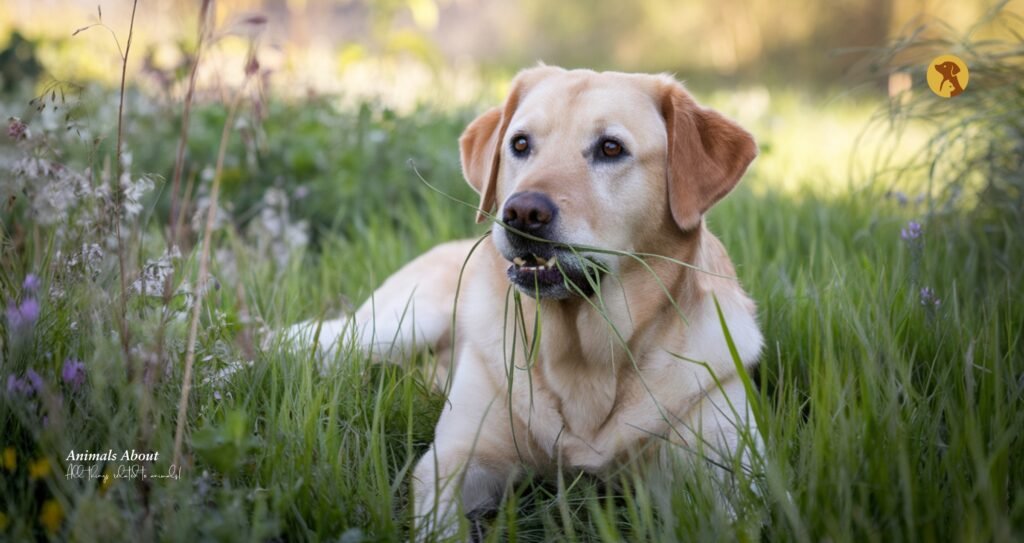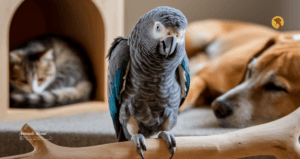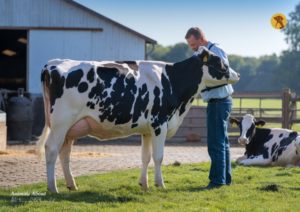Is It Normal for Dogs to Eat Grass? Let’s Clear the Confusion
Have you ever caught your dog chewing grass in the backyard like a little lawnmower? You might have panicked, thinking, “Why is my dog eating grass?” or “Is something wrong with my dog?” The truth is, dog eating grass is surprisingly common, and in many cases, it’s completely normal. Dogs are curious creatures. They explore the world with their mouths, and sometimes grass just happens to be part of that experience.
In fact, numerous studies suggest that up to 79% of dogs occasionally eat grass. It’s often considered a part of normal dog digestive behavior, especially if it’s not followed by vomiting. For some dogs, eating grass is a soothing, instinctive action, possibly inherited from their wild ancestors. But when your dog eats grass and throws up shortly after, it raises important questions about canine nausea, diet deficiencies, or gastrointestinal issues. If your dog also barks excessively along with eating grass, it could be a sign of emotional distress. Here’s why your dog might be barking too much and how to respond.
Why Dogs Eat Grass and Vomit – What’s Really Going On?
Dogs eat grass and vomit for several reasons. It’s not always something to worry about, but it can be a sign of something deeper. One of the most common explanations is that the dog has an upset stomach. Grass, with its fibrous texture, may act as a mild irritant that triggers vomiting. It helps expel whatever is bothering your dog’s digestive system. This is a classic case of canine self-medicating behavior, often observed when dogs experience discomfort.
There’s also the theory that dogs might eat grass simply because they enjoy it or because they are bored or anxious. Yes, stress plays a major role in unusual behaviors like this. If your dog is often alone, lacks stimulation, or goes through changes in their environment, they may develop a dog eating grass habit as a form of coping.
Moreover, pica in dogs—a condition where animals eat non-food items—can explain compulsive grass eating. This condition is sometimes connected to dog diet deficiencies. If your pup lacks fiber or essential nutrients, grass might offer a temporary solution, though not a healthy or sustainable one.
Dog Eating Grass Causes: Physical, Emotional, or Nutritional?
When looking at dog eating grass causes, it’s crucial to consider all angles. Not all grass eating is created equal. Some dogs do it occasionally and never vomit, while others make a habit out of it and vomit every time.
Let’s break down the common reasons:
- Physical Reasons: A bloated belly, gas buildup, or stomach acid may cause discomfort. Dogs may use grass to help purge the irritants.
- Nutritional Reasons: Dogs not getting enough fiber or vitamins in their food may seek natural sources, like grass.
- Emotional Reasons: Stress-related dog behavior is a huge factor. Dogs dealing with loneliness or anxiety may eat grass repetitively to cope with those feelings.
Some dog owners report that their dogs vomit only after eating certain types of grass—usually broadleaf varieties with rough edges. These blades can irritate the lining of the stomach and trigger vomiting, sometimes with yellow or green bile. This is where the concern for dog gastrointestinal issues arises.
Dog Vomiting Bile After Grass: Should I Be Concerned?
Seeing your dog vomit bile after eating grass can be alarming. The yellow or green fluid, often mistaken for food, is actually bile—an acidic substance produced in the liver to aid digestion. If your dog vomits bile frequently, especially on an empty stomach, they may be suffering from canine nausea or excessive stomach acid.
This could be due to irregular feeding times or long gaps between meals. When the stomach stays empty too long, acid builds up and causes discomfort, leading your dog to seek relief by eating grass. Once ingested, the grass irritates the stomach lining just enough to induce vomiting and get rid of the acid.
If this happens occasionally, it may not be serious. However, dog vomiting bile after grass more than once or twice a week isn’t something to brush off. It may be a symptom of chronic gastrointestinal issues such as gastritis, inflammatory bowel disease, or food allergies. Your vet might suggest diagnostic tests or a change in diet.
When Should You Worry About Your Dog Eating Grass and Throwing Up?
It’s easy to dismiss the occasional grassy snack. But when the behavior becomes regular, it might point to a more serious problem. So, should I worry if my dog eats grass? The answer depends on several signs.
Seek veterinary attention if your dog shows:
- Vomiting after every instance of eating grass
- Lethargy, fatigue, or depression
- Bloody vomit or stool
- Significant changes in appetite
- Weight loss or signs of dehydration
- Diarrhea or frequent gastrointestinal upset
These symptoms could be warning signs of an underlying issue like gastrointestinal inflammation, parasites, or even organ dysfunction. Early intervention can save your dog from long-term discomfort and you from expensive treatments down the road.
Veterinary Advice for Grass Eating and Vomiting in Dogs
Veterinarians often recommend a combination of observation and lifestyle changes before jumping to medical treatments. If your dog is healthy, active, and only occasionally eats grass without further symptoms, no treatment is usually necessary. But if vomiting is consistent or accompanied by other signs of illness, testing for dog gastrointestinal issues may be necessary.
Your vet may run blood work, fecal exams, or ultrasounds to rule out any internal problems. They might also suggest switching to a high-fiber dog food or adding digestive supplements. Dogs with dog diet deficiencies may need more than standard kibble—consult your vet about balanced diet options with essential fatty acids, prebiotics, and greens.
How to Help Your Dog Avoid Eating Grass
If you’re tired of watching your dog graze the lawn, here are some ways to discourage this behavior naturally:
- Feed a Balanced Diet: Ensure your dog’s food contains enough fiber, protein, and micronutrients.
- Offer Safe Greens: Consider offering dog-friendly veggies like green beans, lettuce, or carrots.
- Stick to a Meal Schedule: Consistent feeding reduces hunger-related nausea and acid buildup.
- Provide Mental and Physical Enrichment: Keep your dog engaged with toys, training, and regular walks to prevent stress-related dog behavior.
Supervise Outdoor Time: Keep an eye on what your dog eats during walks or playtime in the yard.
FAQ
Yes, it’s fairly common. Many dogs eat grass and vomit shortly afterward. This may help them relieve nausea or clear irritants from their stomach. However, frequent vomiting should be evaluated by a vet.
If your dog eats grass every day but doesn’t vomit or act sick, it might just be a habit. Still, it’s best to check for signs of pica in dogs, stress, or poor nutrition. A vet checkup can help rule out concerns.
Yes, dogs may eat grass as a natural remedy to induce vomiting or relieve an upset stomach. This behavior is believed to be a form of self-medicating, though it’s not proven for all dogs.
Disclaimer: This content is for informational purposes only and does not replace professional veterinary advice. Always consult your veterinarian for guidance specific to your pet’s health. Published by animalsabout.org.







